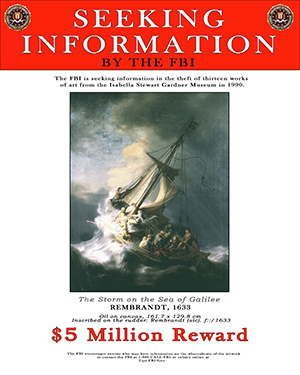 Quotable
Quotable
“If I got to the point where I wasn’t nervous about it, I would probably need to find something else to do for a living.”
– Appellate attorney Paul Clement, former U.S. Solicitor General (2005 to 2008), on arguing cases before the U.S. Supreme Court.
Clement made the statement last month, the day after arguing his 83rd case before the nation’s high court, in an interview with the State Bar of Wisconsin.
A Wisconsin native, Clement is the opening speaker at the State Bar’s 2016 Annual Meeting and Conference in Green Bay, June 16-17.
His topic: “The Roberts Court.” Read our interview with Paul Clement from the May 4 issue of WisBar InsideTrack™.
Good Ideas
Fantasy SCOW
A law firm fantasy league has now reached the shores of Lake Michigan.
 Alan Ball, a Marquette University history professor who publishes SCOWstats – a statistical blog on the Wisconsin Supreme Court – has started a fantasy league (pilot project) for Wisconsin law firms.
Alan Ball, a Marquette University history professor who publishes SCOWstats – a statistical blog on the Wisconsin Supreme Court – has started a fantasy league (pilot project) for Wisconsin law firms.
Participating law firms receive points based on performances before the Wisconsin Supreme Court. That is, a favorable decision will result in points for the law firm that argued the winning case.
As of press time, “The Citations” were winning. That team consists of: Cannon & Dunphy; Crivello Carlson; DeWitt Ross & Stevens; the Frank J. Remington Center; Godfrey & Kahn; O’Neil, Cannon, Hollman, DeJong & Laing; and Piper Schmidt & Wirth.
Source: www.scowstats.com
On the Radar
April Showers Bring May ...
 But spring and summer storms can bring natural disasters. From flooding to tornadic destruction, lawyers and law firms should be ready for natural and other disasters, like fires.
But spring and summer storms can bring natural disasters. From flooding to tornadic destruction, lawyers and law firms should be ready for natural and other disasters, like fires.
In 2012, a fire caused major damage to a Madison office building that housed a dozen law firms. Lawyers affected, who spoke with Wisconsin Lawyer™ a couple months after the fire, explained the feelings of “despair” and “panic” that set in when they realized what was happening.
Although planning cannot eliminate the full impact of a disaster, planning can help mitigate the fallout and keep your business going. If you haven’t done so already, now is a good time to identify the critical information that should be maintained off premises, the key supplies to have on hand, and other important preparations.
Tom Watson’s article from the July 2012 issue of Wisconsin Lawyer, “Prepare a Disaster-Recovery Plan Before Disaster Strikes,” is an oldie but goodie.
Check it out in the Wisconsin Lawyer archive.
Practice Tip
Don’t Pay Full Price for Case Management Software
The State Bar of Wisconsin announced last month that MyCase – a case management software solution – was added to the portfolio of discounted products that come with State Bar membership.
 Get a lifetime 10 percent discount off your monthly subscription to MyCase, which includes an integrated client portal, allows attorneys to organize and manage documents, increase mobility, and track time, expenses, and billing.
Get a lifetime 10 percent discount off your monthly subscription to MyCase, which includes an integrated client portal, allows attorneys to organize and manage documents, increase mobility, and track time, expenses, and billing.
The software, with bank-grade security, provides connectivity through computers and mobile devices, generates billing and productivity reports, and integrates legal billing and payment systems.
Interested in other State Bar benefits you may be missing? Visit the “Member Benefits” page.
By the Numbers
$150 Million
 – The value of stolen art recovered by the FBI’s Art Crime Team since 2004. In that time, the Art Crime Team, supported with art theft prosecutors from the U.S. Department of Justice, has recovered more than 2,650 items, including works by Picasso, Rembrandt, Matisse, and Renoir.
– The value of stolen art recovered by the FBI’s Art Crime Team since 2004. In that time, the Art Crime Team, supported with art theft prosecutors from the U.S. Department of Justice, has recovered more than 2,650 items, including works by Picasso, Rembrandt, Matisse, and Renoir.
But one of the largest art heist’s in U.S. history remains unsolved. In 1990, two men dressed as police officers stole 13 paintings valued at approximately $500 million from Boston’s Isabella Stewart Gardner Museum.
Now 26 years later, investigators are still working the case. In 2013, the FBI identified possible suspects, without naming them, and determined that the art was at one point transported to the Connecticut and Philadelphia areas.
“The theft has spawned books, rumors and speculation about who was responsible – and multiple dead ends,” the Associated Press reported in 2015.
Source: FBI.gov
From the Archives
Matisse: The Lawyer Who Could Have Been
 The French artist Henri Matisse (1869-1954), one of the most famous painters in art history – with works such as Dance, Woman with a Hat, and Portrait of Madame Matisse – actually began his professional career as a lawyer in Paris.
The French artist Henri Matisse (1869-1954), one of the most famous painters in art history – with works such as Dance, Woman with a Hat, and Portrait of Madame Matisse – actually began his professional career as a lawyer in Paris.
At his father’s urging, Matisse passed the bar in 1888 and began clerking at a law office, although he did so “begrudgingly,” according to one biography.
A year later, he fell ill with appendicitis. During his recovery, Matisse’s mother brought him art supplies and he began painting. That was the end of his law career.
“From the moment I held the box of colors in my hands, I knew this was my life. I threw myself into it like a beast that plunges towards the thing it loves,” Matisse later recalled.
Moral of the story: Follow your passion.
Source: www.henri-matisse.net
